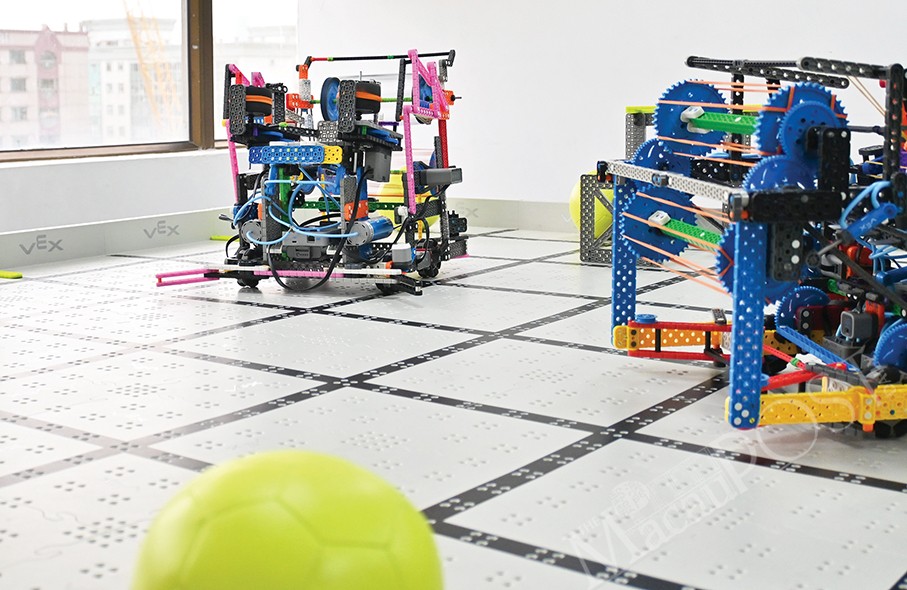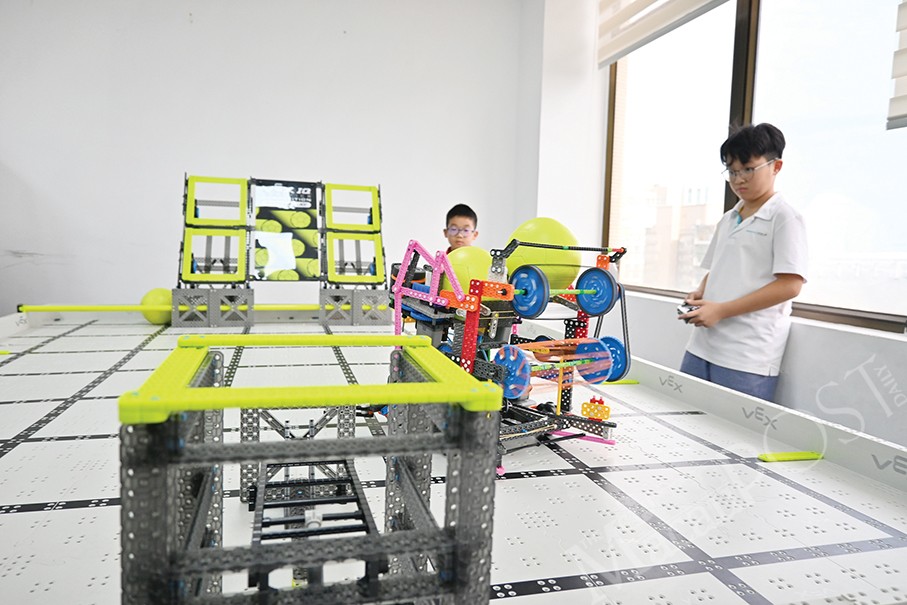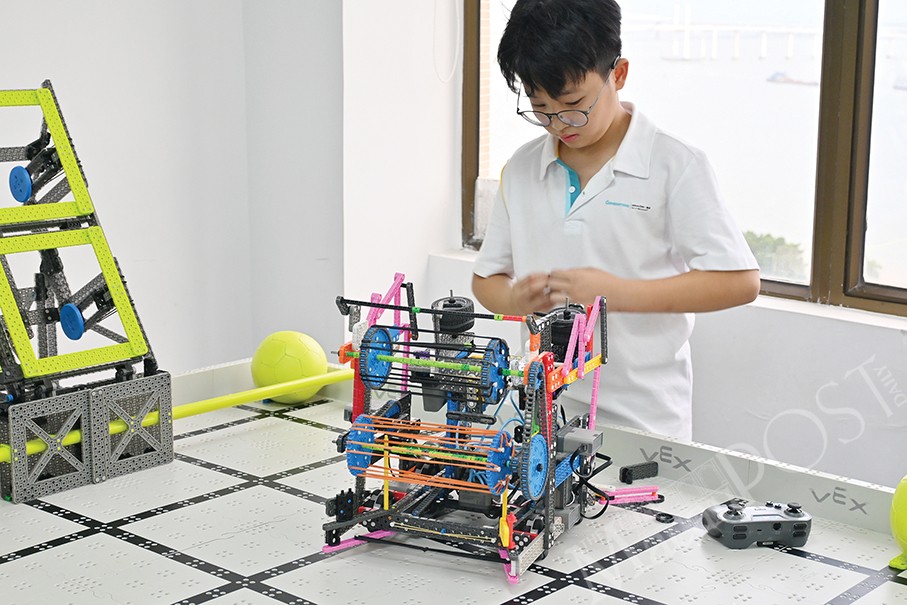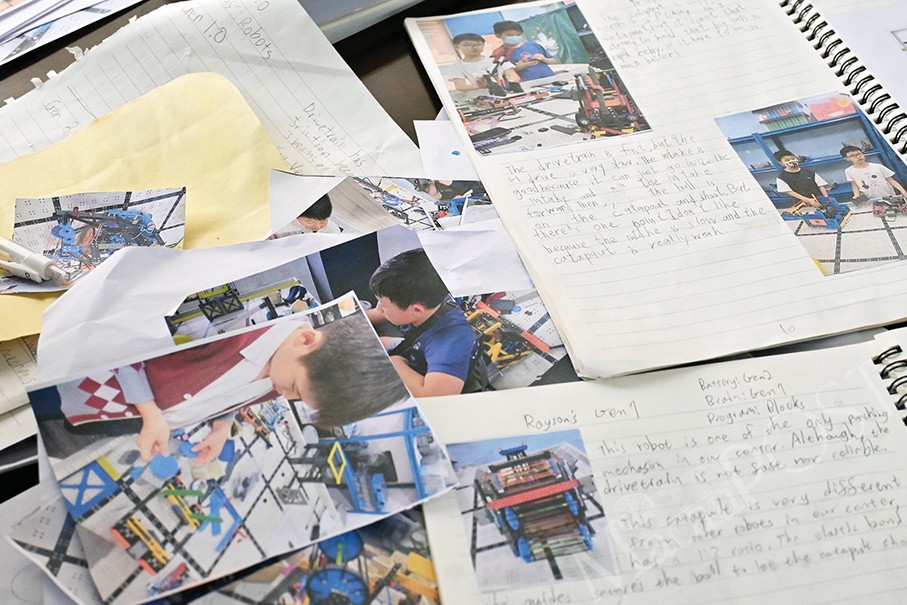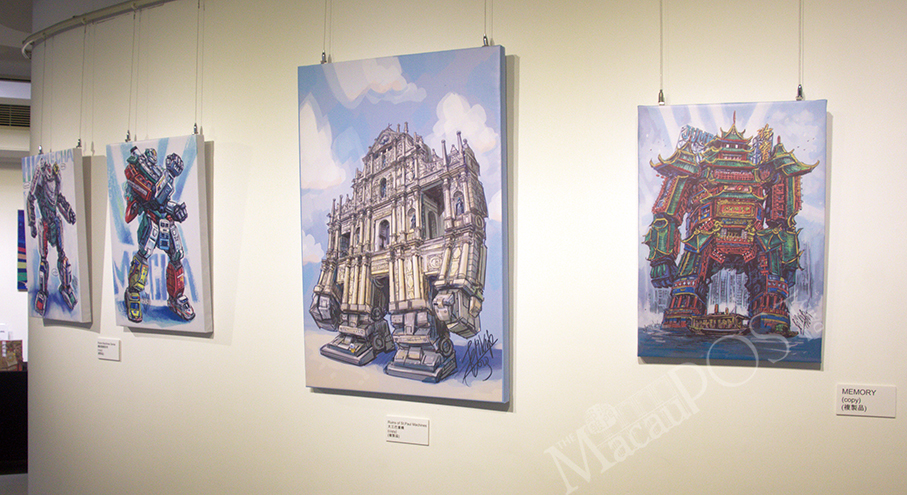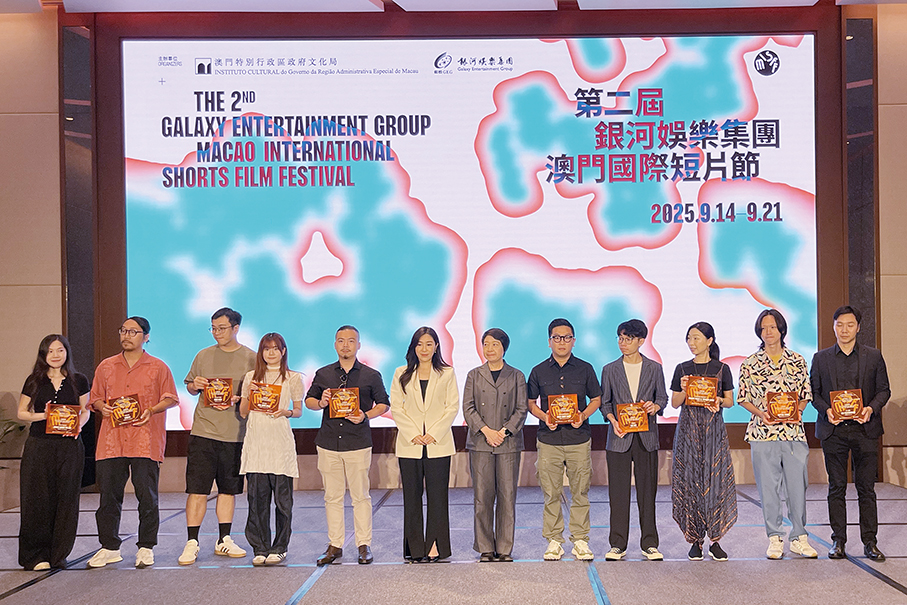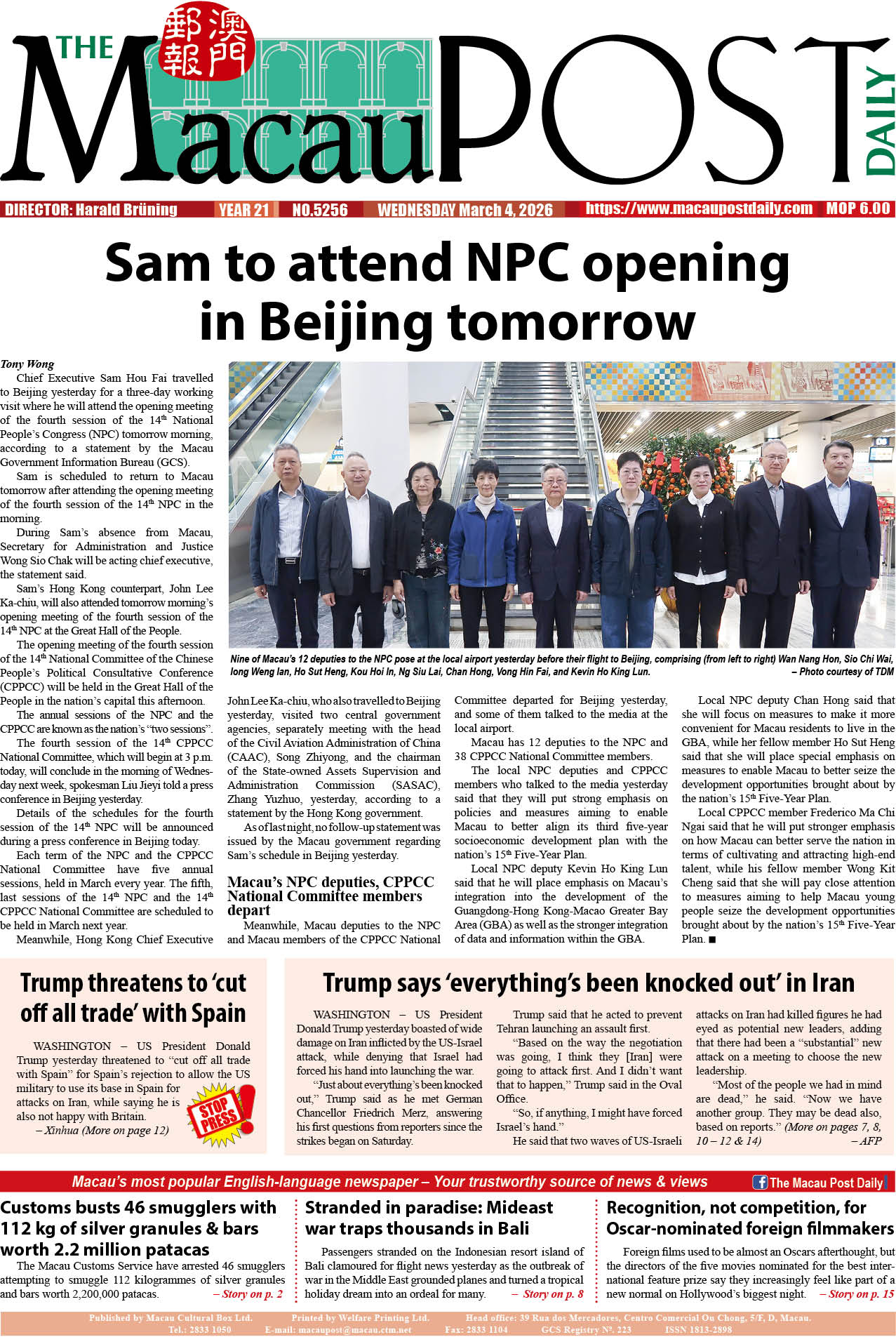Interview by Rui Pastorin
In Nape, a centre called “Macau Artificial Intelligence Education Centre” is striving to prepare youngsters for the future, as well as help diversify Macau’s economy.
Focused on robotics and artificial intelligence (AI) education for kids, mainly aged between four and 16, the centre was launched right around the time of the COVID-19 pandemic, and was “kind of started to improve on what Macau could offer”, said instructor, co-founder and director Charles Hugentobler (姚查理), along with instructor and director Gary Lai Ho-yin, in a recent interview with the Post.
Hugentobler, who is of mixed European and Chinese descent, lived and studied in Macau from 1999 to 2007, and moved around quite a lot. He returned in 2018 and together with Lai, who was born and raised in the UK and had previously worked in Hong Kong, started to put the centre together.
The mainland is “pushing a lot of robotics and AI right now, so I think it’s only natural that in a small city like Macau thinks about developing this area as well”, Lai added.
The centre initially began with offering courses on robotics, Hugentobler said, which is fun and combines a range of skills such as robot building and designing, along with teamwork. Eventually, other courses in related fields such as 3D printing and even foundational courses in programming were added. Most recently, they introduced formal courses in mathematics.
The centre offers no specific timetable for students to follow and students can come as they like, being likened to a subscription. They are recommended to take one lesson or module per week, which will help them master the fundamentals. And as long as they finish that given module, they’re free to decide what they actually want to do, according to Hugentobler.
Hugentobler said that some kids may be organising robot battles, others might be working on maths problems and games, while some might be playing with 3D software or even using it to print their own models. “We leave it up to the students to decide what kind of thing they gravitate towards. We find that this is our best way of helping students find their passion”, believing that each kid is naturally gifted at something.
“Each child is unique and has something special to bring to the table, he. Our role as educators, as mentors here, is to help them discover that special something and to help bring out that potential”.
Moreover, gathering their experiences and finding out what they are inclined to or are passionate about may also help them find a study or career path that they might be interested in, Lai noted, who added: “There’s so many things that a kid can do… If there’s an area that a kid wants to focus on then they can totally do that. And then once they figure out what they want to do, they’ll probably say to their parents ‘yeah, I want to study that at university’”.
Lai also mentioned that some students ask to stay at the centre longer – compared to spending time on other extracurricular activities – as they like its learning environment a lot.
The centre also has a competition team of around 10 to 15 kids, and Lai, who is also the lead coach and mentor, apart from helping to design and build robots, elaborated: “They do a lot of training, and then when we send them out to competitions around [mainland] China or Thailand or Japan, they’re fully prepared because the kids have to do everything by themselves”, everything from programming to writing their engineering notebooks.
Both interviewees noted that they want to push students to take part in as many competitions as possible to get into competitive robotics, with having a chance to win being able to help put Macau in the spotlight.
Lai also remarked on how intelligent kids are right now, being able to build robots by themselves at around 10 or 11 years old, knowing the mechanical concepts and different programming involved, among others. “They’re really far ahead compared to 20 to 30 years ago”.
“It’s good to start early right now, because we strongly believe that robotics and AI are going to play a very important part in our daily lives”, Lai pointed out, adding that he believes the earlier these are introduced to kids, the better. “I think robotics and AI have to be part of our diet, especially for the younger kids now.”
Everything the centre has been offering mainly revolves around AI and robotics, seeing this as an opportunity to prepare kids for future careers in these fields and build companies in these fields in Macau, according to Hugentobler. They also try to help fill in the gaps for Macau to nurture the necessary talents to be able to diversify its economy.
“The results aren’t obvious, but I do sincerely believe that into the farther future, we are making an impact, the most significant one. We are filling in those gaps that cannot really be filled in by other entities in society. And I think that if that’s what we can do, then we are really serving a real purpose,” Hugentobler concluded.
More details about the centre can be found on its Facebook page or on
https://www.maiec.ai/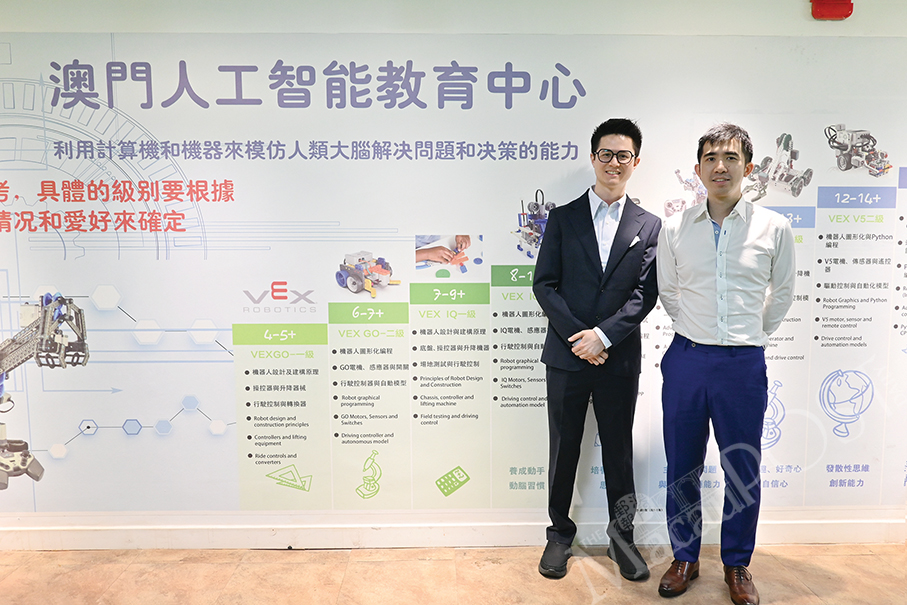
Instructor, co-founder and director Charles Hugentobler (left) and instructor and director Gary Lai Ho-yin pose in front of a banner at their “Macau Artificial Intelligence Education Centre” in Nape. – Photos taken recently by Rui Pastorin
